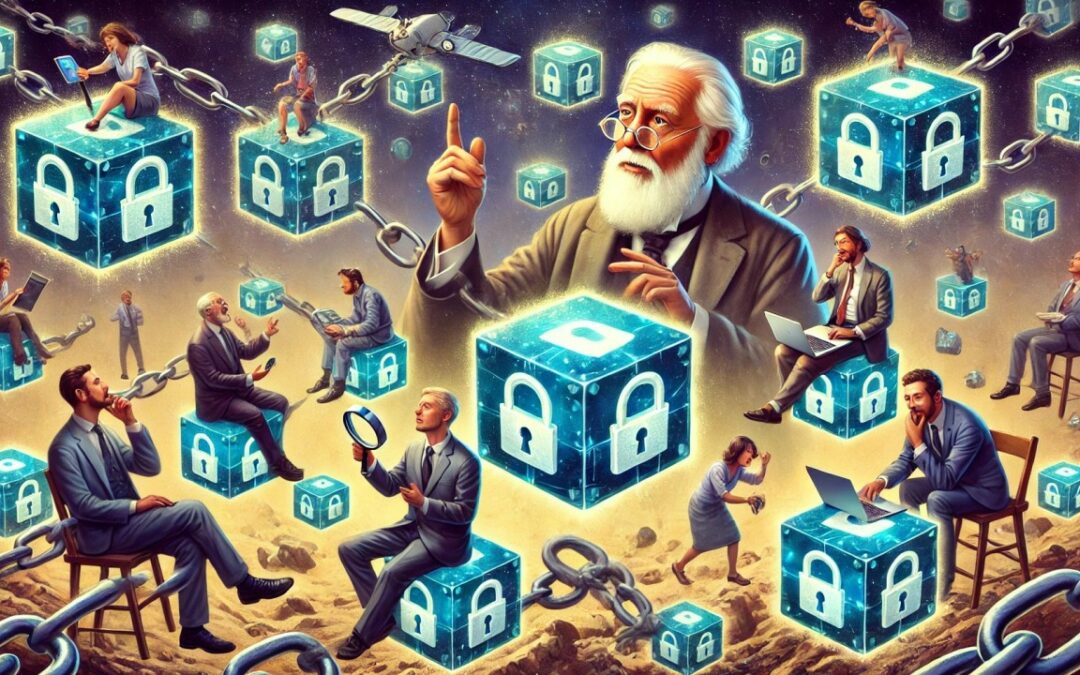What Industries Are Adopting Blockchain Technology?
Blockchain technology is no longer just a buzzword in tech circles. It’s transforming industries across the globe by offering secure, transparent, and efficient ways to manage data and transactions. While blockchain initially gained fame through cryptocurrencies like Bitcoin, its real-world applications go far beyond digital money. Let’s explore the industries that are embracing blockchain and why they’re doing it.
Finance and Banking
The financial sector was one of the first to adopt blockchain, and for a good reason. Blockchain simplifies cross-border payments, reduces transaction fees, and improves security. Banks like JPMorgan Chase and payment platforms like PayPal have integrated blockchain to enhance their services.
Key Benefits for Finance:
Faster Transactions
Settlements that used to take days now happen within minutes.
Reduced Costs
Fewer intermediaries mean lower fees.
Improved Security
Transactions are encrypted and nearly impossible to alter.
Healthcare
In healthcare, blockchain helps in managing patient data securely and efficiently. Imagine a world where your medical records are accessible to authorized professionals at the click of a button—without risking your privacy. Blockchain ensures that sensitive data is encrypted, tamper-proof, and accessible only to those with permission.
Real-World Applications:
Electronic Health Records (EHR)
Blockchain can unify fragmented medical records.
Drug Supply Chain
It helps track medications from production to delivery, combating counterfeit drugs.
Supply Chain and Logistics
Supply chains are often complex, involving multiple players and paperwork. Blockchain provides transparency and accountability, ensuring every step of the process is traceable. Companies like IBM and Walmart are using blockchain to monitor their supply chains.
Why It’s a Game-Changer:
Transparency
Every transaction is recorded, making fraud nearly impossible.
Efficiency
Smart contracts automate processes like payment releases upon delivery.
Real Estate
Buying or selling property often involves tedious paperwork and high fees. Blockchain streamlines the process by digitizing contracts and ensuring transparent property records. It’s revolutionizing how we buy, sell, and even rent real estate.
Notable Uses:
Smart Contracts
Automatically execute agreements when conditions are met.
Property Records
A tamper-proof way to verify ownership history.
Entertainment and Media
Piracy, copyright infringement, and unfair revenue sharing are significant challenges in this industry. Blockchain offers a solution by enabling direct transactions between creators and consumers, ensuring artists get fair compensation.
Examples in Action:
Digital Rights Management
Ensures creators are paid for their work.
NFTs (Non-Fungible Tokens)
Allow artists to sell unique digital art directly to fans.
Government and Public Services
Governments worldwide are exploring blockchain to improve transparency and efficiency. From secure voting systems to digital identities, blockchain could redefine public administration.
Promising Applications:
Voting Systems
Tamper-proof voting records for fair elections.
Identity Management
Secure, decentralized digital identities for citizens.
Retail and E-Commerce
Retailers are using blockchain to enhance customer trust. From verifying the authenticity of luxury goods to ensuring ethical sourcing, blockchain makes transactions transparent.
Benefits for Consumers:
Product Authenticity
Track items from production to purchase.
Loyalty Programs
Blockchain-powered reward systems that are easy to manage.
Final Thoughts
Blockchain technology is no longer confined to tech enthusiasts and cryptocurrency traders. Its adoption across various industries proves its versatility and potential. Whether it’s securing financial transactions, tracking supply chains, or revolutionizing healthcare, blockchain is shaping the future in ways we couldn’t have imagined a decade ago.
Are you ready to explore how blockchain could impact your life or business? The possibilities are endless—and it’s just getting started87,k.

